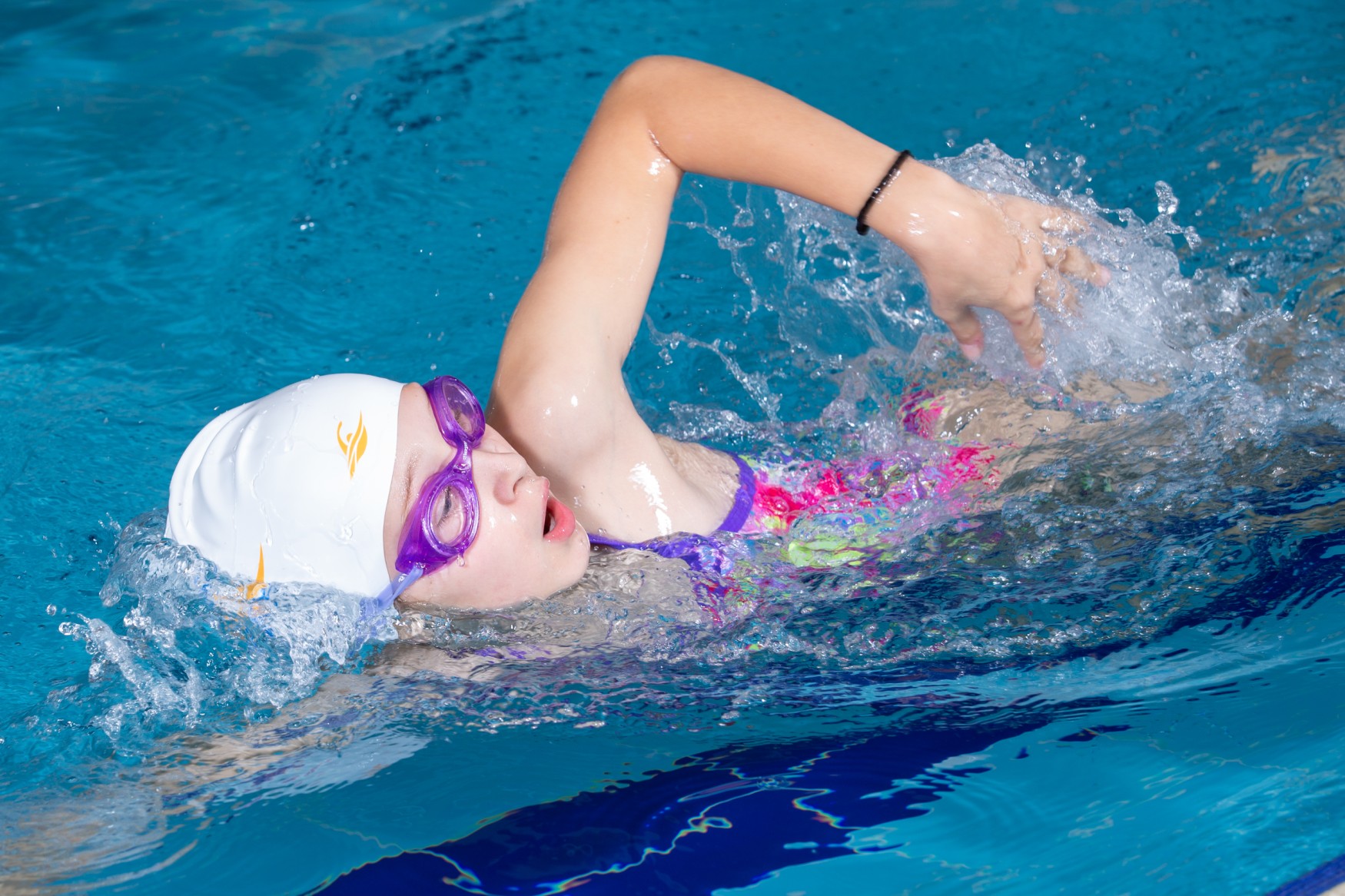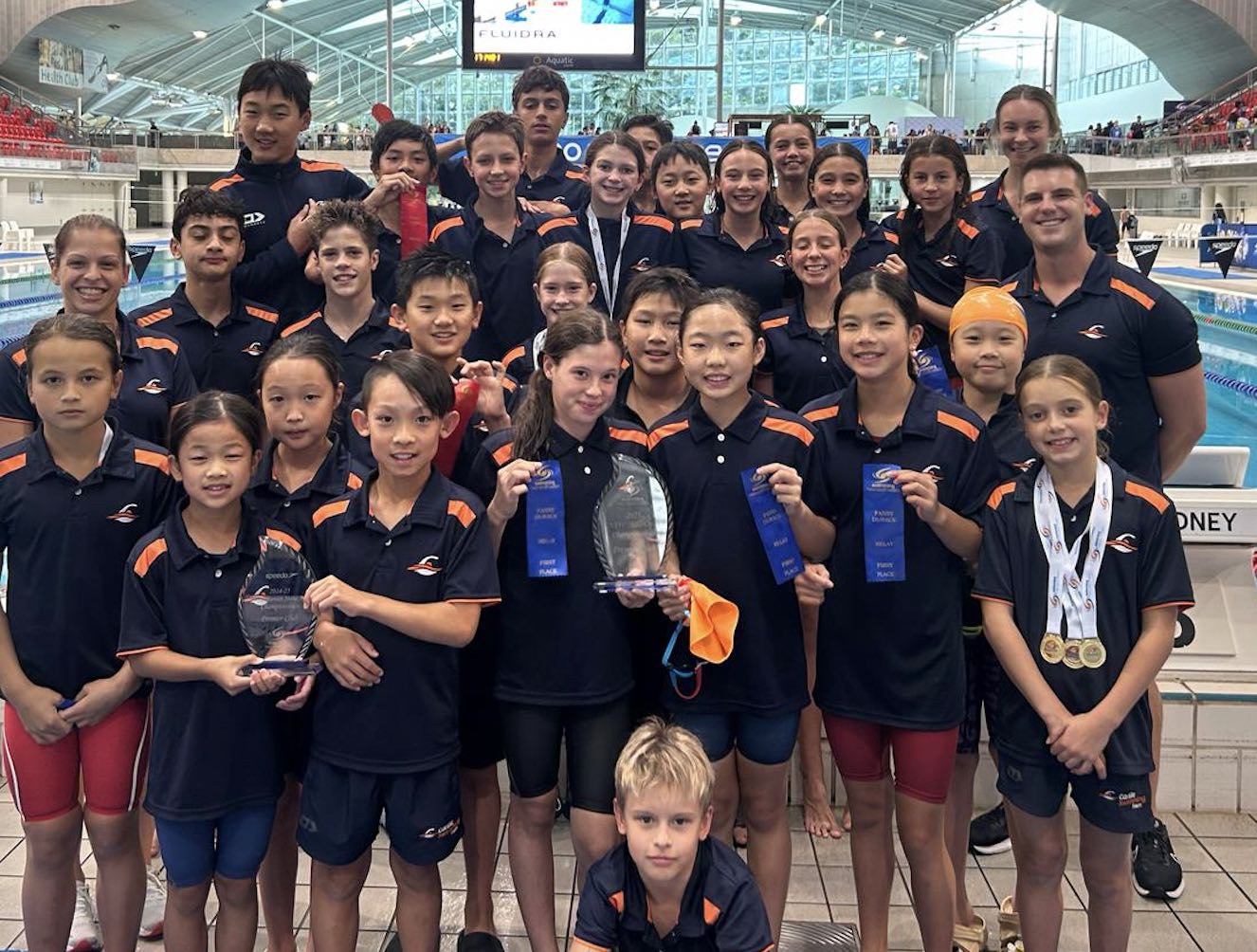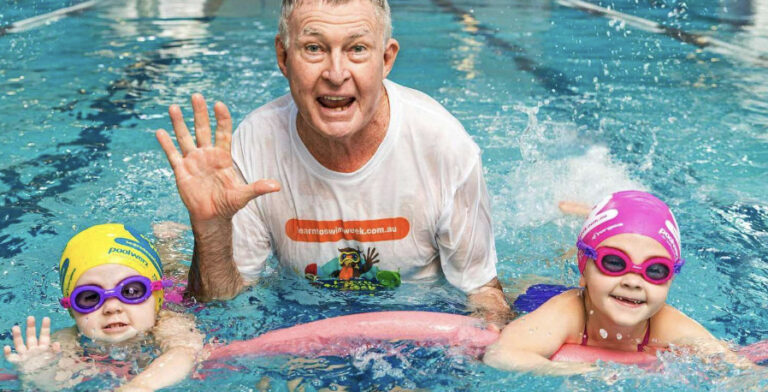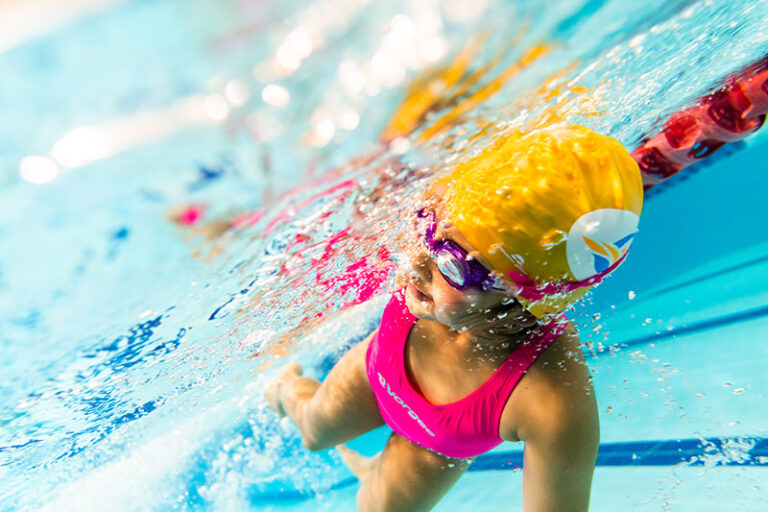When should your child start swimming lessons? The simple answer is, the sooner the better. Though a later start to swimming is better than never at all.
Swimming is a life-saving skill that all children should have. But sadly, many children are missing out and their lives are at risk. Royal Lifesaving research reveals more than 40% of Australian children graduating from primary school can’t swim 50 metres or keep themselves afloat for two minutes.
This is simply not good enough. These children don’t have the basic skills they need to save themselves in an emergency. Tragically, last year 32 children aged between 0 and 14 drowned. Most in swimming pools.
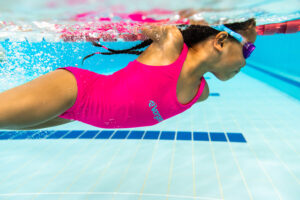
Carlile kid enjoying their school-aged swimming lesson
Of course, learning to swim is not just about saving lives. If you can’t swim you can’t fully enjoy Australia’s lifestyle. Being a nation surrounded by water, leisure sports such as surfing, waterskiing and fishing are popular among young Australian families. But these fun activities can quickly become life-taking for non-swimmers.
Carlile Swimming provides a world class swimming program working to prevent such frightening outcomes by ensuring all children acquire the skills and confidence necessary to keep them water-safe.
“Every drowning is tragic. Losing a loved one to drowning is a nightmare and it’s often preventable,” says CEO of Carlile Swimming, Jon Harker.
“The very first step is enrolling your children in swimming lessons.”
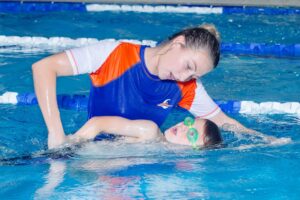
Carlile instructor teaching life-saving freestyle
When is the best time to start swimming lessons?
Children can and ideally should start as young as 3 months old. Yes, while it’s unrealistic to expect a baby to be swimming laps of freestyle, these “swimming lessons” are all about developing basic water confidence and the essential skills which could save their life.
“An inexperienced child will panic when confronted with unfamiliar experiences. Building confidence and familiarity in the water reduces a child’s likelihood to panic”, says Carlile Swimming’s head of curriculum Dave Dubois.
Being in the water is a nurturing place for babies, having spent nine months in the womb surrounded and supported by amniotic fluid. Getting your baby started early with swimming lessons when they have been used to the feeling of water around their ears and eyes is often more pleasant than waiting until they are a toddler when those memories have faded.
So, can a baby learn the skills in swimming lessons to buy a precious few moments that could avoid a tragedy? Yes.
But remember in an emergency every second counts. Learn CPR and if your child is missing, look in the pool first.
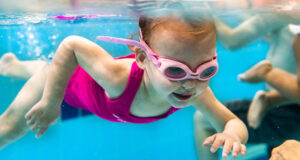
Practicing swimming in Carlile’s warm indoor pool
Swimming will make your baby smarter!
Water skills aside, here are some benefits of starting structured swimming lessons as a bub:
- Encourages muscle, lung and heart development
- Strengthens the bond between you and your child
- Helps your baby to sleep longer (so extra sleep for you!)
- Improves physical, emotional, social and cognitive skills
Does that last bullet point sound like a stretch?
A four-year study by Australia’s Griffith University found children who attended regular swimming lessons improved physical, emotional, social and cognitive skills. Compared to the non-swimming population, the 3 to 5 years old’s in the study were:
- 11 months ahead in verbal skills
- 6 months ahead in math skills
- 2 months ahead in literacy skills
- 17 months ahead in story recall
- 20 months ahead in understanding directions
The researchers surveyed parents of 7000 under-fives from Australia, New Zealand and the US over three years. A further 180 children aged 3, 4 and 5 years were then involved in intensive testing, making it the world’s most comprehensive study into the benefits of swimming for children.
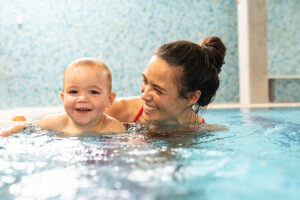
Mum and baby share some bonding time in Carlile’s Waterbabies class
Carlile pioneered baby swimming lessons in Australia
Forbes and Ursula Carlile opened Sydney’s first indoor baby teaching pool and Carlile has led the industry ever since.
Carlile’s waterbabies classes are conducted with a parent in the water with the child, but don’t be put off by the thought of hopping in the pool… with lots of fun songs and games, parents often leave having just as much fun as the little ones!
Carlile’s baby classes are designed for:
- Bonding time
You’re in the water with your child! It’s fun, and you’ll be amazed at how much you will both love the experience
- Learning to float
Developing balance and flotation comes easier when babies start young. Expert teachers help you to help your bub.
- Back floating
With your support, it’s amazing to see your little one relaxed and breathing comfortably while floating on their back.
- Holding their breath
Children are encouraged with cues, songs and toys, to learn to be comfortable with their face underwater.
- Submerging
Another key skill that little ones learn and love! Exploring underwater is lots of fun.
- Singing and playing
Any teacher knows fun is where learning starts and confidence grows. Games, songs and play keep your little one engaged
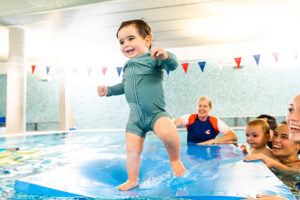
Water baby loving the mat time in his swimming lesson
Can my child start swimming later?
While starting swimming lessons that little bit older won’t give your child the same great benefits as baby swimming, a later entry is still better than never at all.
For nervous beginners and first-timers, Carlile Swimming’s school-aged water confidence program allows for a gentle introduction to the water. The warm, shallow pool makes learning to swim enjoyable.
Children build self-confidence through achievement, so starting off with the simple stuff is the way to go.
Knowing that children learn through play, Carlile’s lessons involve games to keep students actively engaged. Games that are used to provide resources that reflect swimming skills and strokes.
With the right nurturing approach, even hesitant children learn to respect the water and love their swimming lessons.
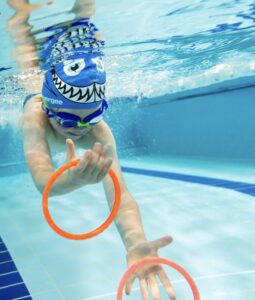
School-aged Carlile swimmer submerging for rings
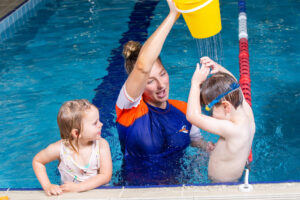
Introducing the water and practicing breath holds with showers
Bottom line, make sure your child learns how to swim, even if it is when they are that little bit older. As Forbes Carlile said, “to swim well is an asset for life”. You’ll be thanking yourself later when your child is able to save themselves from a slippery situation.
If you’d like to know more about Carlile’s water confidence and learn to swim programs click here.


